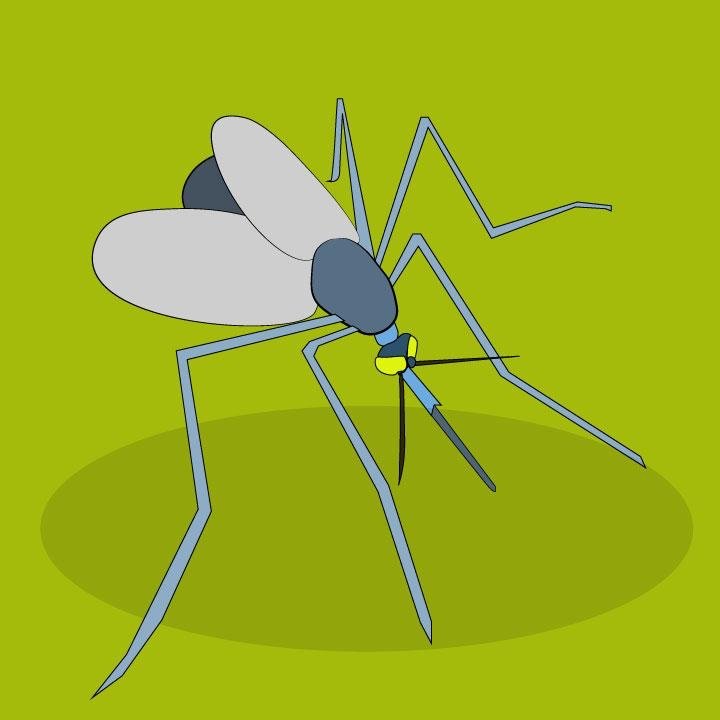By Dr. Craig Stoops
For many people, mosquitoes are a part of life in the summer. Their presence is annoying and can even threaten the health of people and pets.
Fortunately, there are ways people can protect themselves against mosquito bites. Three effective ways to control mosquitoes around a house and limit exposure to their bites are: 1) Source reduction, 2) EPA-approved repellents, and 3) Hiring a professional.
Source reduction
Many mosquito species like to use water found in unattended bird baths or discarded items such as buckets, tarps, and children’s toys as locations to lay their eggs and continue the next generation. By emptying and cleaning bird baths and discarding items that can hold water (often called “tip and toss”) one can greatly diminish the mosquito population around their house and protect themselves from mosquito bites.
It is important to get your neighbors involved as well. What they do will impact you because mosquitoes will easily go from one property to the one next door seeking a blood meal.
EPA-approved repellents
There are numerous safe and effective insect repellents available on the market in a variety of formulations such as sprays, creams and wipes. The best and longest-lasting repellents contain the active ingredient DEET, but there are other active ingredients available such as picaridin, IR3535 and several botanical ingredients such as lemongrass oil and others. Visit the U.S. CDC website on mosquito bite prevention for additional information: https://www.cdc.gov/ncezid/dvbd/about/prevent-bites.html
Researchers are always looking for additional “tools for the repellent toolkit” and new effective active ingredients have been recently found. One example is nootkatone. The EPA has recently provided approval for this active ingredient developed by scientists and the U.S. CDC from the Alaska yellow cedar tree. It has shown in the laboratory to be effective at repelling both mosquitoes and ticks and is available for development by a company into a commercially available product.
Not everyone will be comfortable using a repellent that contains DEET. And repellents are only effective if people use them, so having ingredients like nootkatone available is important in protecting people from mosquito bites. Here is the U.S. CDC webpage on nootkatone: https://www.cdc.gov/media/releases/2020/p0810-nootkatone-registered-epa.html
Hire a professional
While people can do a lot to control the mosquitoes around their house by discarding and emptying containers that breed mosquitoes, there may be times that getting advice from a professional is necessary to effectively control the problem. Pest control operators specifically trained in identifying the mosquitoes in your yard and recommending an integrated control program can be a great way to provide season-long relief from mosquito bites.
When considering using a pest control company, be sure to do your homework and make certain you are hiring certified professionals who understand the methods and limitations of mosquito control. These professionals will be able to identify problem areas and use both non-chemical and EPA-approved insecticides to control the problem.
Dr. Craig Stoops (www.mosquito-authority.com), LCDR (ret.) MSC USN, is a retired U.S. Navy medical entomologist and chief science officer at Mosquito® Authority, a mosquito control company. He has conducted mosquito control and research in the United States, South and Central America, Southeast Asia, Africa and the Middle East. He has a B.S. in biology from Shippensburg University and an M.S. and Ph.D. in entomology from Clemson University. Dr. Stoops is board certified by the Entomological Society of America in medical and veterinary entomology.






